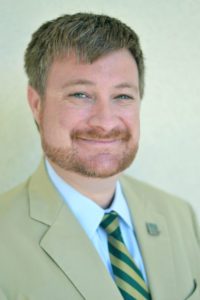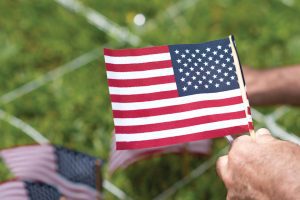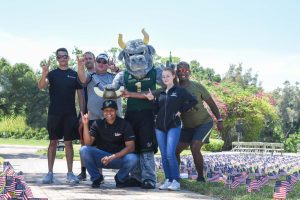Q&A with Casey Welch
Vice President, External Affairs and Governmental Relations
Casey Welch is vice president for external affairs and governmental relations at the USF Sarasota-Manatee campus. He serves as the official liaison between the USF Sarasota-Manatee campus and government entities and oversees the campus’ community engagement and corporate partnership activities.
He also serves as director of the Institute for Public Policy and Leadership (IPPL), which engages USF’s strong academic resources and local, national and global experts to guide a dynamic exchange of ideas about important policy and leadership issues. IPPL hosts lecture series, policy forums, seminars and workshops to stimulate meaningful, civil discussion and promote public discourse in our community.
As the leader of IPPL, Welch serves on the Government Issues Council of the Greater Sarasota Chamber of Commerce, the Career Edge Regional Workforce Council, the Government Affairs Committee of the Lakewood Ranch Business Alliance and as chair of the Legislative Committee for the Manatee Chamber of Commerce.
He partners with Jay Riley, the USF Sarasota-Manatee campus’ director of business outreach and community engagement, to oversee the campus’ County Career Connections, Shadow Days and mentorship programs, all designed to provide opportunities for students to learn more about career paths and network with working professionals.
Can you describe IPPL’s role in the Sarasota-Manatee region?
An important part of IPPL’s mission is to provide civic engagement opportunities as a neutral convener to exchange ideas on policy and leadership issues for the local community. We’re not a purely Sarasota-focused entity, and we’re not a primarily Manatee-focused entity; as an institution of higher education, we’re positioned as a non-biased entity that doesn’t have the perceived agenda of a specific stakeholder group. We bring in the concerned entities on a particular issue and say, “Here’s what the facts say.”
We’re in geographically neutral territory as an institution of higher learning on the line between Manatee and Sarasota counties; and it sets the tone for having a broader, more academic conversation about policy problems and solutions. In the past 16 months, we have hosted summits focusing on important issues like grade-level reading and workforce readiness. We provide the space to have those discussions, some of them uncomfortable, some of them maybe enlightening but ultimately not easily achievable, and I think that’s our unique purpose-to facilitate that dialogue. Also, in election years we’ve hosted candidate forums to allow the community as well as campus stakeholders the opportunity to meet and listen to potential policymakers.
How does the campus’ agreement with the USF School of Public Affairs benefit our students?
The biggest benefit is having students from our campus participate in public policy internships, because until now there was really no direct way for our students to participate in those opportunities. There are four programs: the Tallahassee Internship Program, the Legislative Internship Program, the USF in D.C. Internship Program and the Washington Center internship program, which is also in Washington D.C.
Now, because of this formal partnership and the synergies created by the academic consolidation of USF, students at the Sarasota-Manatee campus are able to access all four of these programs. And we will work with professors and staff on our campus to identify student candidates. We already have one student in the Legislative Internship Program through a mutually beneficial partnership with the Sarasota County Government and the Board of County Commissioners.
Will this partnership also lead to professional development opportunities and non-credit seminars for USF Sarasota-Manatee campus faculty, staff and students?
Yes. We started working with the USF School of Public Affairs through CyberFlorida, which is facilitating workshops for local governments across Florida. These workshops are focused on the trend of hackers attacking local governments. We are planning to deliver a workshop on this topic for the Sarasota-Manatee government agencies.
The non-credit education piece focuses on civic education — how we are informing faculty, students and staff on our campus. For example, it’s an election year, so what does that mean, and what’s the civic education around that? What do people need to understand about qualifying for races, how an individual candidate gets on the ballot, how ballot initiatives get on the constitution and so on?
How has COVID-19 affected IPPL?
Thankfully, the University of South Florida has strong technology assets that provide IPPL the technical capabilities to continue to engage the community by hosting virtual policy summits, candidate forums and civic engagement programming. Also, our mutually beneficial partnerships with local stakeholder groups such as the various chambers of commerce afford us the opportunity to utilize their built-in network of members to expand the virtual reach of IPPL. As we all continue through this new normal we will work to expand our virtual offerings to the community and cultivate a deeper and more pervasive presence in the Sarasota-Manatee area.





